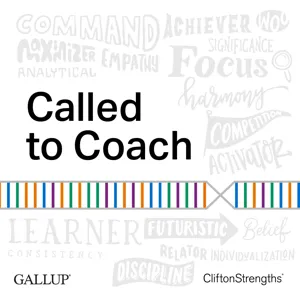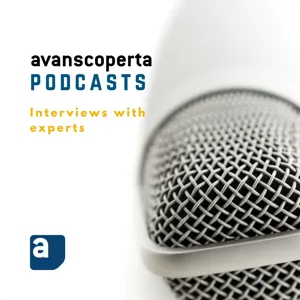Podcast Summary
The Power of Authenticity and Building Intellectual Property: Earning trust and delivering value are crucial to building a strong community and successful intellectual property. Personal experiences and storytelling can help establish authenticity and create a connection with followers.
Key takeaway from this episode of the GaryV audio experience is the importance of earning trust and delivering value to build a strong community and intellectual property. Gary Vaynerchuk shared his personal experience of how his full eureka moment led him to create VeeFriends, and how the trust and context his followers had in him played a significant role in its success. He emphasized the balance of fear and conviction in taking risks and building a reputation. Gary also mentioned his admiration for entrepreneurs like Vince McMahon and Walt Disney, who have made audiences care about their creations through storytelling and building strong communities. Overall, this episode highlights the importance of authenticity, trust, and delivering value in creating successful intellectual properties.
Leadership and Continued Growth Matter in Crypto Projects: Strong leadership and continuous growth are crucial for crypto projects' long-term success. Short-term financial gains should not be the sole focus.
While community support is important in the success of a project, it's not the only factor. The founders and creators of a project play a crucial role in its long-term success. Comparing the current crypto landscape to the 1992 Chicago Bulls fandom in New Jersey, the speaker emphasizes that without strong leadership and continued growth, communities may lose interest and sell their tokens. Short-term financial gains should not be the sole basis for supporting a project. The speaker's past successes do not directly translate to VeeFriends' success, but rather, a thoughtful and nuanced approach is required. The continuous evolution of the project and its ability to adapt to the market is essential. The speaker warns of potential carnage and significant financial losses due to the current focus on short-term gains. Ultimately, it's important to be thoughtful and consider the long-term potential of a project, rather than just the immediate financial benefits.
Considering Opposing Viewpoints in New Technologies: Stay grounded, recognize competition, seek counterpoints, and be cautious when investing in new technologies like cryptocurrency and the metaverse.
While the excitement and potential of new technologies, such as cryptocurrency and the metaverse, can be immense, it's crucial to remain grounded and consider opposing viewpoints. The speaker shares his experience of investing in iPhone games early on and the importance of recognizing the vast competition and execution required for success. He also emphasizes the potential risks associated with a significant portion of people's net worth being tied to these assets. The speaker encourages actively seeking out counterpoints to avoid echo chambers and becoming overly invested in one perspective, especially when dealing with financial matters. He concludes by drawing parallels to the web 2.0 era and the importance of staying cautious amidst the transactional nature and immediate availability of money in these emerging spaces.
Understanding Web 3.0 and Sharing Value: Thorough research, considering various perspectives, focusing on value to others, and maintaining self-awareness are essential for successful engagement in Web 3.0.
Successful engagement in the Web 3.0 space requires a deep understanding of the underlying technology and a long-term commitment to sharing value with others. The speaker emphasizes the importance of doing thorough research and considering various perspectives before making investments. He also stresses the importance of starting with a focus on what can provide value to others, rather than solely considering personal gain. Additionally, maintaining self-awareness and being mindful of potential pitfalls, such as losing focus or succumbing to external pressures, is crucial for sustained success. Overall, the conversation highlights the importance of a thoughtful, informed, and altruistic approach in the rapidly evolving world of Web 3.0.
NFTs and Web 3: Disrupting Industries: NFTs have the potential to disrupt industries, from fitness franchises to publishing, by fundamentally changing how contracts and ownership are managed. Stay focused on your expertise and gradually expand your knowledge as the NFT landscape evolves. Provide valuable insights and resources to build trust and credibility in the NFT community.
NFTs (Non-Fungible Tokens) and the broader concept of Web 3 represent a fundamental shift in how contracts and ownership are managed in various industries. This technology is still in its infancy, but it has the potential to disrupt every business sector, from fitness franchises to publishing. The speaker's experience of creating a bestselling book using NFTs demonstrates the power of this platform. As the technology evolves, it will likely move beyond being seen as just collectibles and become an integral part of various industries. It's crucial for individuals and businesses to embrace the learning process and not be afraid to admit what they don't know. The speaker encourages staying focused on your expertise and gradually expanding your knowledge as the NFT landscape continues to evolve. Additionally, providing valuable insights and resources, even in small quantities, can help build trust and credibility in the NFT community.
Focus on building your own conviction in Web3: Instead of trying to convince others about Web3's merits, focus on developing your own expertise and belief in the technology. Adapt to challenges and maintain a positive mindset towards the ecosystem.
Instead of wasting energy trying to convince others about the merits of Web3, focus on developing your own conviction and expertise in the field. The speaker shares his experience of educating influencers and emphasizes that convincing others is often a waste of time and energy. Instead, believe in the potential of Web3 technologies and continue to learn and grow in your understanding of them. The speaker also mentions his comfort with the market and the importance of being adaptable, as every project and chain faces challenges. Lastly, he encourages a positive and abundant mindset towards the Web3 ecosystem, rooting for the success of all projects rather than engaging in negative competition.
Exploring New Blockchains and Consumer Needs: The speaker is an Ethereum enthusiast but open to other platforms like Seoul and Cardano, emphasizing consumer needs and transparency as key factors for success. They criticize the focus on financial gains and arbitrage in crypto, encouraging education and a long-term perspective.
The speaker is an ethusiast of the Ethereum blockchain but is open to exploring other platforms like Seoul and Cardano out of curiosity and a desire to meet consumer needs. They believe that the market will ultimately determine the success of different chains and that people should be transparent in their actions to build trust. The speaker has had negative experiences with traditional markets and finds the transparency and openness of the NFT world appealing. They also criticize the focus on financial gains and arbitrage in the crypto space, which they believe is a major vulnerability. The speaker encourages education and a long-term perspective in crypto investments. Despite dealing with the issue of unwanted airdrops, they remain optimistic about the potential of various blockchain projects. Overall, the speaker emphasizes the importance of staying adaptable, transparent, and consumer-focused in the rapidly evolving crypto space.
Investing with a critical and informed mindset: Value honesty and experience, research thoroughly, stay informed, and prioritize projects with successful founders to avoid potential market dips and past mistakes.
The speaker values honesty and experience in the crypto world, which is often overshadowed by greed and flipping mentality. The speaker believes that the current market is saturated with projects and people looking to make quick profits, leading to a potential massive dip. He also emphasizes the importance of learning from past experiences and mistakes. The speaker prefers investing in projects with founders who have a successful track record, but acknowledges that even established companies like Uber, Facebook, and Google had founders without prior success. He shares a personal experience of being betrayed by a project founder and now focuses on thoroughly researching and vetting projects before investing. The speaker also mentions the importance of staying informed about the industry and being open to new alternatives. Overall, the speaker's takeaway is to approach investing with a critical and informed mindset, prioritizing honesty, experience, and thorough research.
Lessons from past experiences shape current endorsement decisions: The speaker values his reputation and carefully considers endorsements, learning from past experiences in the sports card industry and observing negative effects of success without humility.
The speaker values his reputation and is cautious about endorsing projects, having learned from past experiences in the sports card industry. He observes people's behavior after they gain attention and success, and has seen the negative effects of a lack of humility. He has become more thoughtful and selective in his endorsements, taking his time to do thorough research before cosigning. The speaker also mentions that he has tripled down on good things in his current project, VeeFriends, and is focused on it while being less active in commenting on other projects to protect his reputation. He is willing to sacrifice being involved in other projects if necessary, as he prioritizes his reputation above all else. The speaker's experience serves as a reminder of the importance of humility and thoughtfulness in the world of NFTs and beyond.



 Do you want your team to be more productive, innovative or engaged? Basketball legend Michael Jordan says it all “Talent wins games, but teamwork and intelligence win championships.” If you want to know how you, as a leader, can leverage neuroscience to increase trust and vulnerability to build and sustain a high performing team, this is the podcast for you.
Do you want your team to be more productive, innovative or engaged? Basketball legend Michael Jordan says it all “Talent wins games, but teamwork and intelligence win championships.” If you want to know how you, as a leader, can leverage neuroscience to increase trust and vulnerability to build and sustain a high performing team, this is the podcast for you.


